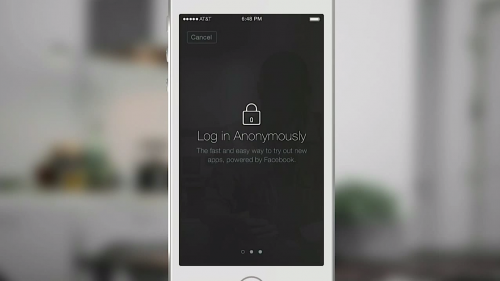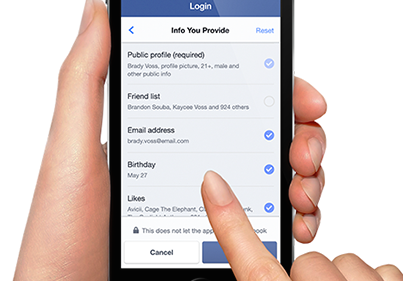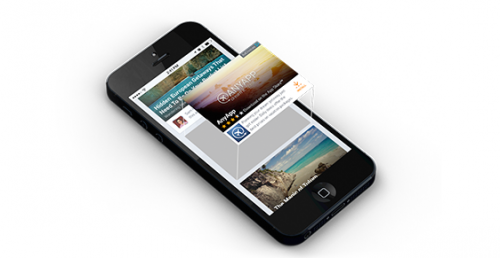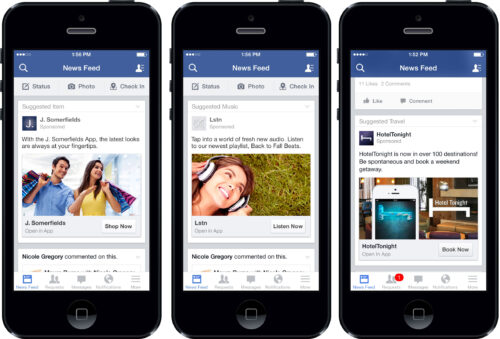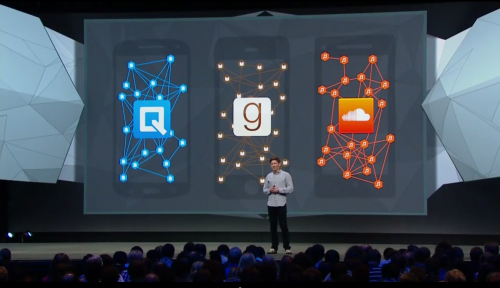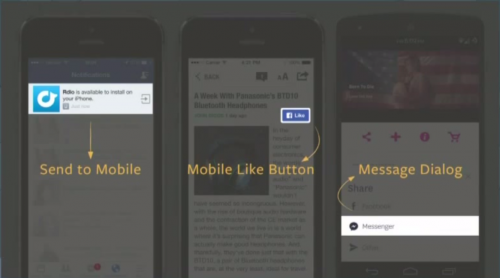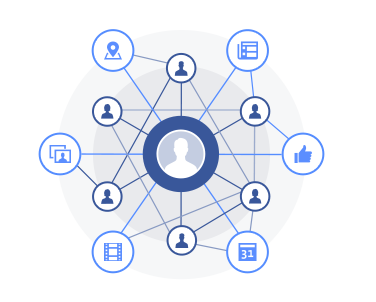Marie Formica
Category: Development
05.02.2014
Facebook’s conference was a little less flashy this year than others, evidenced by the company changing its famous motto from “Move fast and break things” to “Move fast with stable infra” (“infrastructure,” that is). However, they did announce encouraging and interesting changes to the way they allow you to access the web with Facebook.
Facebook derives 60% of its revenues from mobile and they’re pushing to boost that number. Use what we learned here to prep yourself for the following shifts that could reverberate across the web and into the future of mobile.
ANONYMOUS LOGIN
Zuckerberg argues that if people don’t feel comfortable with sharing your information with a new and unknown app, it’s bad for them and bad for app developers. He revealed a feature that gives Facebook users a very tight leash on their information: Anonymous Login.
Image from the f8 Keynote Presentation
This uses an anonymous identifier to completely block access to Facebook information while still logging in. It will also allow users to sync across devices, again, without fully logging in. The Anonymous Login function will provide the full experience of an app without having to fully commit.
“We know some people are scared of pressing this blue button.” – Mark Zuckerberg
Zuckerberg’s reasoning for this huge change: “As many as two-thirds of people who download an app don’t ever create an account.” Additionally, Facebook users now control what categories of information apps can see from their Facebook profiles, such as Likes.
Image courtesy of Facebook
ENGAGEMENT ADS
Image courtesy of Facebook
Engagement ads let the advertiser target in-app events in a user’s downloaded apps. If someone using the Beats Music app, for example, fills out their profile but don’t complete any actions, Beats Music can know this connection failed, and advertise to that person on Facebook, prompting them to take an action like “Listen.” This pulls the user back into the app.
APP LINKS
Facebook has developed an open source tool that will change how often app users return to an app after clicking a link. AppLinks let developers program a functionality into apps that links out directly to other apps using URLs. The app user can then click back to the original app from the second, newly opened app.
That means the user can click a Soundcloud link from within Quip, it will open the Soundcloud app and provide a way, within that app, to navigate back to Quip.
Image from the f8 conference
This new way to provide context to links could encourage more linking in apps, lead to better navigation to deep links on mobile, and eliminate mobile web browsers.
NEW FACEBOOK ENGAGEMENT
Facebook updated their native tools with a three new tricks to increase engagement.
Image from the f8 conference
1. Send to Mobile: When browsing an app on a desktop and logging into that app using Facebook, users will have an option to click “send to mobile.” This function will send that Facebook user a push notification to download the app on mobile the next time they log in on their mobile Facebook app.
2. Mobile like button: This functionality is identical to the Like button in a desktop webpage, making it easier to share content with just one click.
3. Message dialog: The share on messenger function on apps will allow users to share directly to a private message with one Facebook friend or group of friends, likely increasing the use of Facebook messenger as well as sharing generally.
“Facebook is moving one step closer to becoming your all-access pass to the Internet.” – Forbes
Image courtesy of Facebook
WHAT THIS MEANS FOR YOU
These four big and initiatives will change how Facebook operates, but will also likely change how the web generally operates as well since many third parties will accommodate the changes Facebook is making for better engagement. That means that we may see mobile browser use decline, improved engagement rates for content via Facebook, and better app engagement. We’re also likely to lose valuable user information because of new privacy settings, but maybe, as Zuckerberg theorizes, this will lead to more valuable engagement with apps and gains in brand trust.
Bonus extra Facebook fun: how many times Zuckerberg said the word “mobile” versus how often he said “trust,” in his presentation and the magic word to add to the comments of a Facebook post for an instant and free boost.
